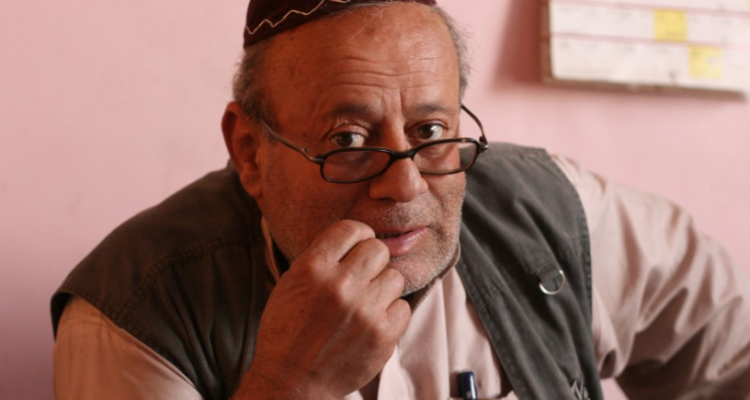Simantov, who lived in and took care of Kabul’s synagogue, was spirited out of Afghanistan in a rescue operation led by Moti Kahana, an Israeli-American businessman.
By Etgar Lefkovits, JNS
Zebulon Simantov, Afghanistan’s last Jew, who was rescued from Kabul in September 2021, arrived in Israel last week.
Simantov initially went to Turkey, spending three years in Istanbul, and would have continued there but was prompted to move to Israel by ill health, the U.K.’s Jewish News reported on Tuesday.
Simantov will settle in Ashdod. In Israel, he has an ex-wife, daughters and five siblings.
Simantov, who lived in and took care of Kabul’s synagogue, was spirited out of Afghanistan in a rescue operation led by Moti Kahana, an Israeli-American businessman.
Simantov drove his rescuers crazy in the process. “The hardest thing I ever did was dealing with that guy,” Kahana told JNS at the time, adding that he’s dealt with many crazy people in his line of work, but Simantov is “definitely on the top of the list.”
Simantov had lived under the Taliban from 1996 to 2001 and managed to survive, even while carrying on a fight with the only other Jew in the country, Isaac Levy, who passed away in 2005.
(It’s been reported that the Taliban once imprisoned them both and then released them because they couldn’t stand the two constantly arguing.)
“You can be a funny character, but we still have to save your life,” Chabad Rabbi Mendy Chitrik, who is based in Istanbul, told JNS at the time.
Chitrik is chairman of the Alliance of Rabbis of Islamic States, an organization serving the religious needs of Jewish communities in places such as Indonesia and Casablanca.
“We were in touch with Simantov for about three years, sending him matzah, asking him if he needed anything,” said Chitrik.
Chitrik said he knew Simantov was a character, having read about his fight with Levy and seen videos of conversations, but it still came as a surprise when Simantov demanded that he be paid to leave.
“First, he said he had some debts he had to pay. Then he said he wanted money,” said Chitrik. “We said we’re not in the business of paying people to get out of Afghanistan. We’re in the business of saving people if they want to be saved.”
“He wanted $50,000. Then he wanted $80,000. Then he wanted $150,000,” said Kahana.
Then Simontov changed his mind. “After Kabul was taken over, a few days into it, he was calling me nonstop to come and get him,” added Kahana.
“I said, ‘Zebulon, it’s too late; my guys are doing other stuff. They can’t come back today.’ ”
The reason Simantov reversed his decision to leave Afghanistan was twofold. “It was his fear of ISIS, and it was his neighbors wanting him to take their kids out,” explained Kahana.
Simantov’s neighbors had reason to fear as they belonged to an ethnic minority, the Hazaras, which was persecuted when the Taliban first took over Afghanistan in the 1990s, massacring thousands.
Once Simantov agreed to go, he insisted on helping his neighbors’ families.
“We had agreed on 18,” said Kahana. “But when my team showed up at his home, he had with him 100. My guys asked me, ‘You want to take all these people?’ And I said, ‘No way, we don’t have the equipment. We’ll take the 18 we agreed.’ After negotiation, we squeezed in 30 people.” That brought the total to 31 with Simantov.
By then, Chitrik and other rabbis had become aware that there was an issue regarding Simantov’s failure to give his wife a get, or religious divorce.
According to Jewish law, a husband must present a divorce document to his wife; when a husband refuses to do so, the wife is unable to remarry.
It has been 20 years since Simantov’s wife left him with their daughters to Israel.
“We put a condition on our involvement in his rescue that he would give a divorce to his wife,” said Chitrik.
Simantov signed the divorce papers.





